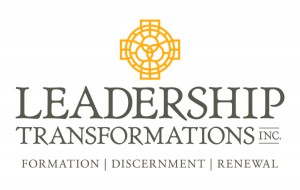Consultant, psychologist and bestselling author Dr. Henry Cloud has written a great book for business leaders, with immediate application to ministry leaders in church and parachurch settings. His thesis in this book, Necessary Endings, is that our personal and professional lives can only improve to the degree that we see endings as a necessary and strategic step to something better. If we only see endings in a negative light, we may never experience the fullness of growth for our business or personal endeavors.
When executed well, “necessary endings” in our lives allow us to proactively correct the bad and the broken in order to make room for the growth we seek. Knowing when and how to let go when something, or someone, isn’t working – in a personal relationship, a job, or a business venture – is essential for our joy and success. This book gives the reader the tools needed for saying a healthy good-bye and move on in life. For those who are faint of heart, this book offers courage and hope.
Some of the key insights that grabbed my attention…
Good cannot begin until the bad ends…endings are a part of life. But, we often do not do them well. We hang on too long when we should end something now. We are afraid of the unknown. We fear confrontation. We are afraid of letting go and the sadness associated with an ending. We do not know the right words to use. When they are forced upon us, we do not know how to process them, and we sink or flounder. In short, we end up working harder at avoiding endings when that energy can be put to far greater and more useful purposes if we embrace endings. We need to be equipped with the discernment, courage, and skills needed to initiate, follow through, and complete the necessary endings of our lives.
Pruning: growth depends on getting rid of the unwanted or the superfluous. Just like a gardener intentionally and purposefully cuts off branches and buds, so too should we welcome such pruning in our lives. All of our precious resources – time, energy, talent, passion, money – should only go to the buds of our lives that are the best, fixable, and indispensable. When our most precious resources are being eaten up by unproductive means or ends, pruning might be the best alternative. How willing are you to prune?
Making endings normal…rather than seeing them only as a problem. How can endings be seen as a good thing? Cloud suggests that we 1)accept life cycles and seasons, knowing that nothing lasts forever; 2) accept that life produces too much life, and therefore spring cleaning is required; and 3) accept that incurable illness and sometimes evil are a part of life too, and need to be eradicated or allowed to fail or die.
Henry Cloud has additional insights on why we tend to get “stuck” and that becomes our norm. Here he encourages the reader to be honest about one’s own internal map, which includes our pain thresholds, covering for others, toxic versions of not quitting, misunderstood loyalty, and codependency. Here there were a handful of “ouch” moments for this reader! But, he continues with words of hope that lead to a healthy pruning moment, and changes that lead to worthwhile conclusions.
The latter part of the book deals with the individual, and how it’s incumbent upon the leader to choose ways to trust self and others in the process of necessary endings. He outlines the difference between the wise, the foolish and the evil persons that surround each of us. Knowing who to trust is essential to healthy endings. Staying motivated and energized for change is something that grows from the inside out, and requires meaningful connections with others in the process.
How well are you maximizing where you are right now and how ready are you to do what is necessary to get to the next place? For the right tomorrow to come, some parts of today may have to come to a necessary ending. What parts are those for you?




